The grand game that makes you a master general.
Chess. The grand game of strategy. A game that teaches the intricacies of careful planning and tactics. We recommend all children have at least a fundamental knowledge of chess. And are, at least, able to play a few games against their friends.
That’s because chess is so good for brain development, like memory, strategic thinking, creative solutions, and the like. It has been shown to help form new neurological pathways.
It certainly showed in some of the world’s greatest chess players, who were geniuses at the game. Some were showmen, some were reclusive, and some were active ambassadors of “the game of kings”. And chess players can even be like “Game of Thrones” characters because some of the twists and turns that happen keep it exciting. We will be looking at, in no particular order, some of the greatest players in recent times.
Garry Kasparov
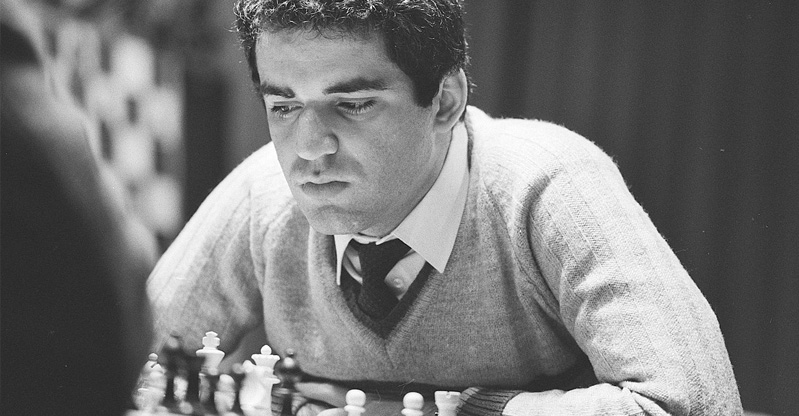
Garry Kasparov has the most consecutive victories as a chess master.
A Russian chess grandmaster, he has done much to advocate the game. Not only has he traveled to various countries to promote it at local chess clubs, but he’s lent his name to a computer chess game series. He’s even gone up against a supercomputer called Deep Blue to prove man can beat machine. (He was proved wrong.)
Early in his career, he caused an upset in the chess world by beating then-champion Anatoly Karpov. Karpov, until this time, had eight consecutive wins in the yearly tournament. He widely expected to win his ninth. Kasparov took that from him in the dramatic final match of the day.
Kasparov is also an all-around good guy. He’s the chairman of the Human Rights Foundation, an organization that, as you can imagine, cares about the little person. Perhaps his ability to think so strategically allows him to properly plan the moves needed to keep human rights front and center in the world.
He had some controversy in his career when he unfriended the International Chess Federation (FIDA, it’s a French acronym, presumably because it’s originally a Franco organization). This was because Kasparov felt players’ interests weren’t well-represented by the organization. Instead, he believed that the organization had become too focused on its handling of commercial interests. This led to him starting his own rival chess organization called the Professional Chess Association. Guessing from the name, its members earn their living in prestigious world competitions or on park tables in Central Park, New York. In any case, chess players were seen as the primary focus rather than the game as a money-making institution.
Finally, there are two important things to note about Kasparov. One is that he won 15 consecutive tournament victories, an unbroken record to this day. And the other is he still wasn’t good enough to beat Deep Blue, a supercomputer from the 1990s. No single human chess player can beat a supercomputer.
Bobby Fischer
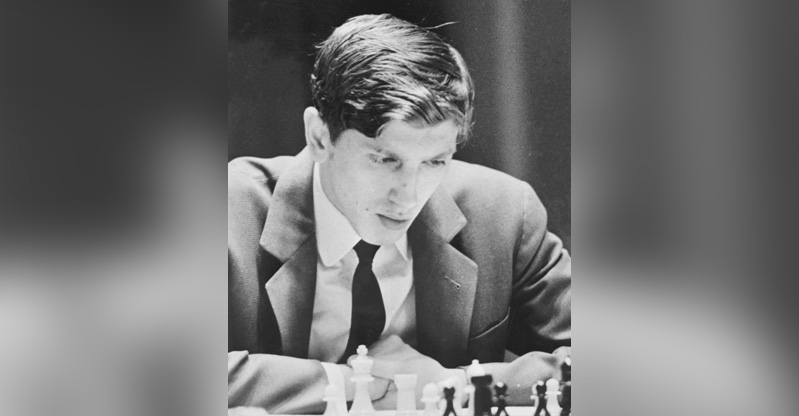
Bobby Fischer was an enigmatic figure in the chess world.
Not many 14-year olds can claim to do what Bobby Fischer did. Bobby upset the 1958 US Championship by defeating opponents at that young and freshly pimpled-faced age. From there, his legend grew. Six years later, at the same tournament, he won again, this time with a perfect score.
The eyes of the world were on this one. Such talent made him a prodigy — he was almost supernaturally gifted in the game.
Bobby found his chess career overshadowed by the frosty winds of the Cold War. As an American, he came face to face with Boris Spassky, another grandmaster of the Soviet Union, for a title match. This electrifying game was held in Reykjavik, Iceland. You couldn’t find a colder place for a Cold War to take place!
Seen as a confrontation between the two superpowers, America and Russia, as represented by the two men, the pressure was on. Until Boris Spassky fell for a trap set up by Bobby, who checkmated him in a dramatic endgame.
Washington celebrated the victory as symbolic. Unfortunately, this would be the high watermark of Bobby’s relationship with the US government. In 1975, Bobby had a disagreement with FIDE. So, he walked out of a title match, leading to his opponent winning by default.
This was a big deal as Bobby was the titleholder.
He disappeared into the figurative wilderness for years. Then, as suddenly as he had disappeared, he rejoined the world stage for an unofficial match in Yugoslavia, again against Spassky, in 1992. It was the rematch for the ages. Unfortunately, Yugoslavia was under a UN embargo at the time, with America leading the way on sanctions. And Bobby, as an American citizen, would be violating US law by participating.
Well, participate he did. And once again, he defeated his old Russian foe. But consequently, he became an exile without a valid passport as the US revoked the legitimacy of his. He even ended up in a Japanese prison for a couple of months for using an invalidated US passport in that country. Perhaps he passed the time in jail by teaching other inmates how to play the great game. Or maybe he simply blew on a harmonica and sang, “Nobody knows the troubles I’ve seen…”. Eventually, he was let out. This didn’t solve the passport problem, however.
Fortunately for him, the world’s oldest parliament, established in the 10th Century, the Althing in Iceland, granted him citizenship in that icy country. So, in a sense, he came out from the cold by going into the cold.
There he remained until he died in 2008. Sadly, just a pawn in a far greater game than himself, the Cold War. And then as a sacrificed piece for the sake of sanctions in Yugoslavia.
Anatoly Karpov
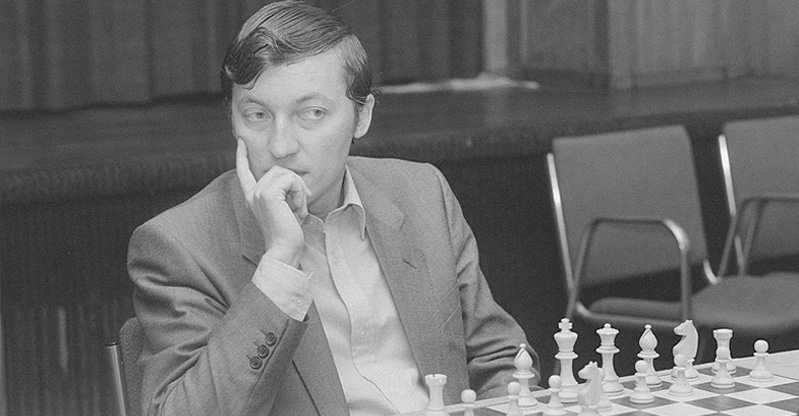
Anatoly Karpov, another great grandmaster, known for his cool under pressure even under the relentless ticking of the chess countdown clock.
Anatoly Karpov, a renowned chess grandmaster with a list of accolades as long as an orangutan’s arm. Not only is his number of achievements astounding, but his successes extend into over 160 first-place finishes.
He was quite happy to represent the Soviet Union, especially in clashes between American opponents like Bobby Fischer.
Currently a member of the Duma, or Russian Parliament, he serves in the Public Council under the Minister of Defence.
Karpov attained the rank of grandmaster in 1971 in the Alekhine Memorial Tournament, held in Moscow. It was quite an achievement as some of the best-known players populated the competition at the time.
Karpov’s rise through the chess world eventually saw him go face-to-face with Bobby Fischer, the titleholder champion of the time. As we now know, Karpov never got to play Fischer, who insisted draws in matches did not count to the overall score, and if the competition ended up with 9-9 matches between them, the current champion would keep his crown. Conveniently, that would be Bobby.
As a result of Fischer’s unrealized and unrealistic demands on the International Chess Federation, Karpov became the new world champion without having won the final match. This led to disappointment on his part, a feeling of a hollow victory. And he opted to set up another game with Fischer.
It was for naught, as negotiations fell through. Perhaps to be expected, as strange, inconsistent behavior tends to follow in the wake of prodigies.
Karpov thus had a yearning to prove he was a worthy titleholder of world champion. This drove him to compete in major competitions across the world, convincingly winning most of them. In fact, he had the most consecutive tournament records (nine) for a while until Kasparov broke the record.
Mikhail Botvinnik
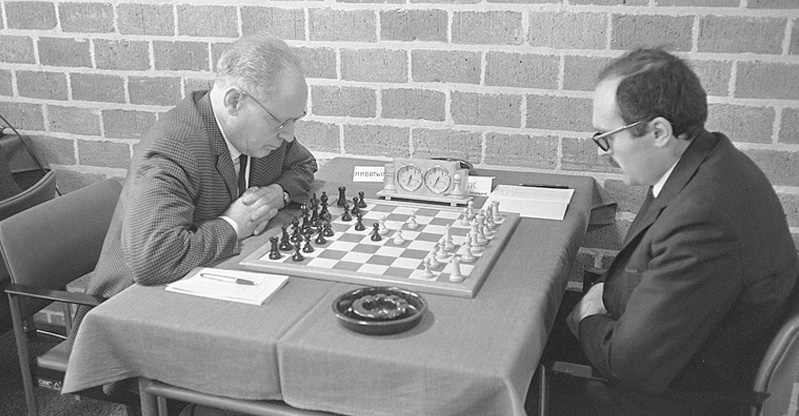
Mikhail Botvinnik, (L), could be your grandfather, playing chess on a summer afternoon, if not for the time pressure of the chess clock.
It’s no coincidence that there are so many Russians on this list of great grandmasters who had a significant influence in the world of chess. The Russian Federation, later the Soviet Union, then back again, has always held chess as, basically, their national sport. If you wonder how a board game could be considered a sport, consider this.
Chess competition matches are timed. If you run out of time, you lose by default. Every time it’s your move, your particular clock ticks down. This puts pressure on you to make your move as fast as possible. But it also leads to making mistakes. Withstanding the pressure means your brain has to process information quickly.
If you make a move that leads to you losing a valuable piece, you’re now at a severe disadvantage. Chess is a sport. It’s a sport of the mind and the brain, requiring our operating systems to go full speed while predicting possible opponent’s tricks, traps, and treachery. And Mikhail was one of the best at this sport.
Mikhail was born to Russian Jews, which put the family in an awkward position in society, both in Czarist Russian, when he was born in 1911 and near the end of that decade when the Bolsheviks came to power to usher in the world’s first communist state.
He declared his allegiance to Soviet Russia but was a mild-mannered man by all accounts. By 20, he had already won his first Soviet Championship in Moscow. He was involved in the politicking of the game of chess in the late 1920s and 1930s.
The political masters of the day were unsure of having Soviet players go against chess players from outside the USSR. Mainly because they didn’t feel their players were strong enough to hold their own.
Mikhail insisted and obtained mixed results in a series of competitions, including a couple of draws against top players.
Then, in the winter of 1936, Mikhail was invited to play in England. The powers that be authorized his entry into the competition. But to provide extra incentive, he was extended a privilege rarely given to international players. His wife would be allowed to accompany him, presumably for moral support.
Despite misgivings by his own Soviet counterparts, who predicted he would be soundly beaten, Mikhail held his own, scoring an undefeated shared first place with a player named Capablanca.
This signaled a major victory for the Soviet way of chess.
Later in life, Mikhail, who had qualified as an electrical engineer, helped pioneer computer chess — primitive in those days, but eventually leading to the defeat of his countryman Kasparov at the “hands” of Deep Blue. (Mikhail, you traitor to humankind!).
Chess for Kids
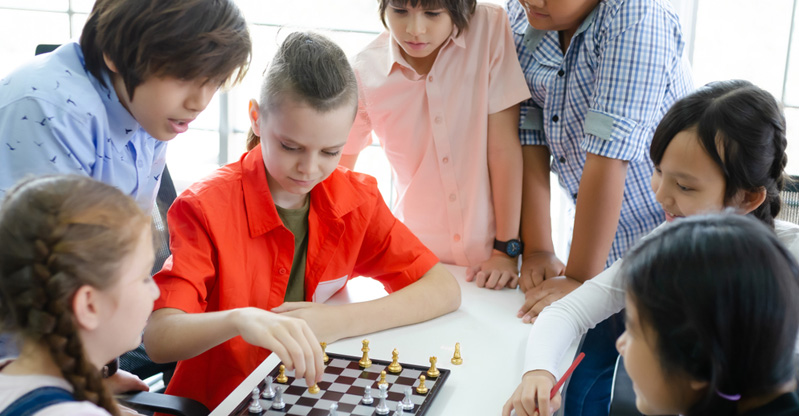
Chess is an excellent way for children to improve cognitive functioning while socializing.
As you can see from this article, some phenomenal minds have been involved in the recent history of chess. To be a grandmaster is no mean feat.
The intensity of chess competitions is as nail-biting as a soccer match with a score of 1 all and five minutes left on the clock.
Chess involves intelligence, quick thinking, strategic planning, and tactical awareness. None of the chess masters on this list could have achieved the heights they did in their world without these qualities.
More importantly, these are aspects of the brain actively encouraged by playing chess. It’s something worth considering for your child. You’d be giving them the mental stimulation that improves several areas of their grey matter. Such as memory, wits, forward-thinking, calculation, and more.
Whether your child can play chess or not, they’d benefit from our chess courses, both for beginners and advanced players. Especially as they’ll play against other kids and get a chance to network with them and build relationships.
If you want to give your child a strategically powerful new sport to improve their cognitive functions, sign them up for one of our courses today.
Because through Tekkie Uni, they’ll soon be crowned king.
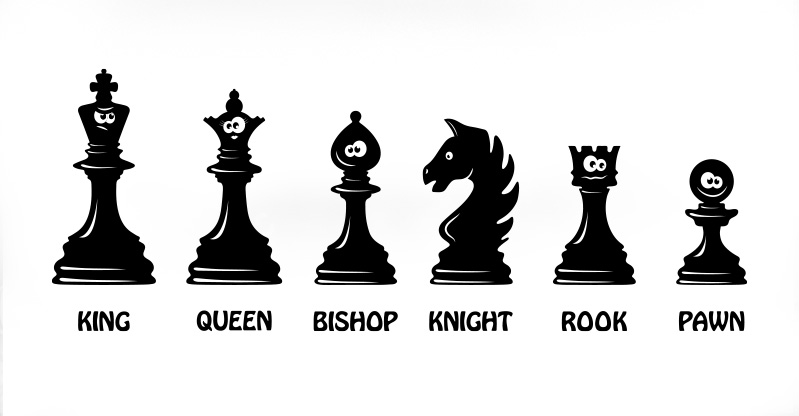
Chessmen, as they’re known, even though they include a chess “lady”, the queen. And she’s the most powerful piece on the board, capable of dispatching other pieces with ease. This just shows that you just don’t mess with some women’s men









Your blog is always a highlight of my day
I appreciate your creativity and the effort you put into every post. Keep up the great work!